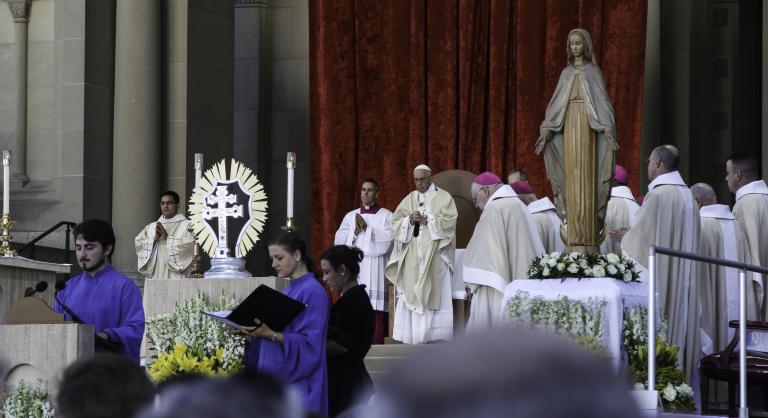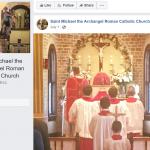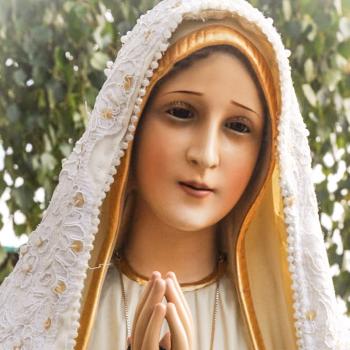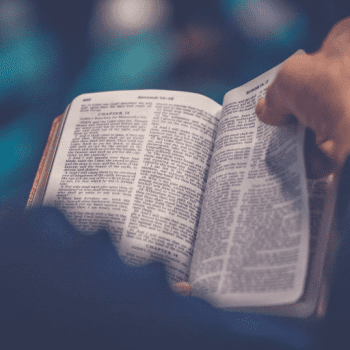
It’s crazy what gets spread online today. One website was posting that Pope Francis denied the Immaculate Conception in his Christmas greetings to Vatican employees. Really? I will include their claim, explain why it’s wrong, point to the times Francis affirmed the Immaculate Conception, and conclude with a note on interpretation.
The Claim of Denial
Gloria.tv wrote a piece titled, “Francis Denying Immaculate Conception: ‘Mary Not Born A Saint.'” This attributes heresy to the following lines:
In his Christmas greetings to the employees of the Holy See on December 21, Pope Francis spoke about Our Lady and Saint Joseph in the Nativity scene being full of holiness and joy.
He continued: “And you will tell me: of course! They are Our Lady and Saint Joseph! Yes, but let us not think it was easy for them: saints are not born, they become thus, and this is true for them too.”
According to Catholic doctrine Our Lady was conceived without original sin and therefore born a saint.
It is odd when an article has a quote attributed to a person in the title but that quote is not in the article.
The Actual Address
The Vatican website includes the full text of the address. The key section is:
Let us look at the Nativity scene. Who is happy, in the Nativity? I would like to ask you children, who love to look at the little figures … and maybe even move them a bit, putting them in different places, angering their dad, who arranged them with such care!
So who is happy in the Nativity scene? Our Lady and Saint Joseph are full of joy: they look at the Child Jesus and they are happy because, after a thousand worries, they have accepted this gift of God, with so much faith and so much love. They are “overflowing” with holiness and therefore with joy. And you will tell me: of course! They are Our Lady and Saint Joseph! Yes, but let us not think it was easy for them: saints are not born, they become thus, and this is true for them too.
Now, what is Pope Franics’s point? It seems to be that each person – even Mary and Joseph – needs to grow in holiness. We become saints by our actions. Of course, Mary was born Immaculately Conceived but she still had free will and if she chose sin she would not have been a saint. She still had to strive for holiness.
Francis on the Immaculate Conception
Pope Francis has even clearly affirmed the Immaculate Conception on multiple occasions. Here are a few.
December 8, 2013:
In view of this motherhood, Mary was preserved from original sin, from that fracture in communion with God, with others and with creation, which deeply wounds every human being. But this fracture was healed in advance in the Mother of the One who came to free us from the slavery of sin. The Immaculata was written in God’s design; she is the fruit of God’s love that saves the world.
Also, December 8, 2013:
You are all-beautiful, O Mary!
In you there is no sin.
December 8, 2014:
The Angel Gabriel calls Mary “full of grace” (Lk 1:28): in her there is no room for sin, because God chose her from eternity to be the mother of Jesus and preserved her from original sin.
Also, December 8, 2014:
Today the People of God celebrate, they venerate you, the Immaculate, ever preserved from the stain of sin. […]
Though we are sinners, we are still your children, the children of the Immaculate, called to that holiness that has shown resplendent in you by the grace of God from the beginning.
December 8, 2016:
He [Jesus] was made equal to us in every way, except one thing, that ‘no’. Except sin. For this reason, he chose Mary, the only creature without sin, immaculate. In the Gospel, with one word only, she is called “full of grace” (Lk 1:28), that is, filled with grace. It means that, in her, full of grace from the start, there is no space for sin. And when we turn to her, we too recognize this beauty: we invoke her, “full of grace”, without a shadow of evil.
December 8, 2017:
Even the greatest saints were sinners and everything in reality, even the most beautiful things, are corroded by evil: everything, except Mary. She is the one “evergreen oasis” of humanity, the only one uncontaminated, created immaculate so as to fully welcome, with her ‘yes’, God who came into the world and thus to begin a new history.
Please Read Francis Fairly
Pope Francis often speaks casually and informally, versus using strict theological language. Whatever you think of this stylistic choice, it is only fair to interpret informal addresses knowing this. When Pope Francis wants to say that even Mary and Joseph faced challenges being holy, I think we all agree. In saying they became saints through their life, he isn’t denying the Immaculate Conception but focusing on Mary’s actions. Let’s read Francis fairly.
Become a Patron! (The best Christmas gift you can give me).
Addendum (added later)
Several people made good arguments in comments to me. If I were to baptize an infant then say right after, “I hope he grows up to be a saint,” I am not denying the efficacy of baptism at removing all sin. Even if someone is free of sin, they can still grow more in virtue. This is the analogy of the different buckets which St Therese of Lisieux is so famous for. Or it’s like a kid might get 100% on math in grade 4 and grade 12 – both are perfect but I think we’d all agree the high school student knows more math.
Furthermore, the word “saint” has two meanings. The first is “one who is in heaven.” The second is “a holy person in heaven or on earth.” Obviously, Mary was not a saint by the first definition till the Assumption.
As well, Dave Armstrong quoted this in an extended version if you want it.












